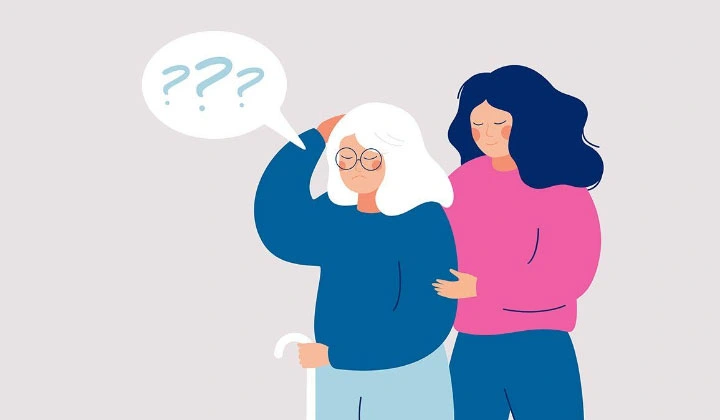No, it is not the only health condition that may cause memory loss or amnesia since the problem can arise at any age for a number of reasons. Most instances of amnesia or memory loss are curable if the underlying reason is identified.
Some of the most common causes of memory loss are as follows:
Silent Stroke
Researchers’ Findings – When a stroke occurs, the brain’s supply of oxygen and vital nutrients is stopped or considerably decreased – patients begin to suffer memory loss and forgetfulness as a result of this issue. This might be linked to blockages in the small blood vessels. Such persons are at a greater risk of having a full-blown stroke later on. In a nutshell, memory loss is the first indicator of a stroke.
A quiet stroke might sometimes produce modest memory issues over time. Vascular cognitive impairment refers to the alterations that might vary from moderate to severe memory loss.
Obstructive Sleep Apnea
Sleep apnea is a painful and debilitating medical disease that has been related to memory loss and dementia. If you experience a headache in the morning or wake up with a headache, your doctor will diagnose you with a disease such as sleep apnea. Additionally, if you snore excessively while sleeping, you may experience daytime weariness. It is a curable sleep condition in which you may have periodic pauses in your breathing throughout the night. Sleep apnea may also interfere with deep sleep, which is connected with rapid eye movement (REM) – which is essential for memory formation. Sleep apnea also has an impact on spatial navigational memory, which aids in recalling the stages and instructions necessary in putting things together. When the oxygen flow to the brain is interrupted hundreds of times throughout the night, the brain becomes agitated and individuals wake up.
Medications
Metformin is a medication that is often used to treat type 2 diabetes. It has been linked to memory problems. Individuals who took the medicine showed worse cognitive performance compared to those who did not, according to research published in diabetic care. Statins, which are used to decrease cholesterol, have also been linked to diminishing cognitive skills such as disorientation and memory loss. Similarly, the Food and Drug Administration advises that some pain relievers, antidepressants, anxiety drugs, antihistamines, and sleeping pills may also impair memory.
Nutritional Inadequacy
Deficiency of B-complex vitamins, particularly all of the necessary B vitamins required for appropriate brain and nerve growth, development, and function. A considerable vitamin B12 shortage may result in attention deficit disorders, concentration and memory problems, and finally dementia. People who are deficient in vitamin B12 should acquire it through their diets, such as meat, fish, liver, or dairy products, while vegetarians should get it from vitamin B12 fortified foods, such as fortified cereals.
Stress, Anxiety, and Depression as Causes of Memory Loss
Stress, anxiety, and sadness are frequent among persons who struggle to balance home and work duties. Extreme stress or worry in such persons may lead to difficulties with focus, concentration, memory, and attention. According to a study published in the Journal of Pharmacy and Bioallied Sciences, untreated chronic stress may lead to depression, which can impair brain function and memory. This illness, however, may be treated with medications, counseling, and psychotherapy.
Why is it necessary to see an expert neurologist?
Patients come to a neurologist and explain their symptoms in general – which are typically identical – but an expert neurologist may go further into what is causing the issue and which regions of the brain are impacted to treat the certain condition.
How is your condition determined?
If you are experiencing persistent memory problems, see your doctor.
The doctor may determine if you have anxiety, sleep problems, depression, or any other severe health condition that is causing memory problems. Based on your symptoms, your neurologist may treat the issues. In addition to a complete medical examination and assessment based on the symptoms, the doctor may perform a few tests, including an MRI (if necessary), to assist in discovering what is causing your memory problems.
Memory loss is the inability to recall things, and it may progress to Alzheimer’s disease. If you have trouble remembering basic things like your keys or appointments – especially if you are in your forties – you may be at risk of getting Alzheimer’s disease. Stress, drug usage, silent stroke, nutritional inadequacy, and sleep apnea are the five unexpected reasons for memory loss. Furthermore, there are other reasons for memory loss – if you believe your situation is unique, make an appointment for an open conversation with the well-known and expert neurologist – Dr. Amit Shah – you may contact this number for appointments.
Read our other Post:

